China’s financing and investment spread across 61 BRI countries in 2023 (up...
2024-02-27 31 英文报告下载
Trade tensions can affect the economy to the extent that they lead businesses to delay making new investments. In July last year and again this January, the Atlanta Fed asked nationwide firms whether they were reassessing capital expenditure plans due to tariff hikes and trade policy tensions. In January, 20% of firms said they were reassessing their investment plans. Roughly half of this group said that they had either postponed or cancelled capital expenditures. The Atlanta Fed's survey shows that goods producers have been more likely than service providers to reassess their investment decisions as a consequence of trade tensions.2 . A greater share of manufacturers in particular have been reviewing their investment decisions, likely a reflection of the types of products on which new tariffs have been imposed since last summer. Within the service sector, businesses in the retail trade, wholesale trade, transportation, and warehousing industries may be among those most likely to see an impact from currently imposed or pending tariffs.
One risk is that with new rounds of tariffs, more firms will begin to re-evaluate their investment plans. The newly scheduled tariffs cover more categories of consumer goods and are therefore likely to affect a broader cross-section of companies. The tariffs effective on 1 September, for example, affect many different types of clothing, footwear, and home furnishings. The businesses that import these products will need to pass along the increase in costs to the end customer, absorb some of the impact through reduced profit margins, or search for alternative suppliers. Although the final outcome is likely to involve a combination of all of these strategies, we expect that in many instances competitive pressures will result in businesses being reluctant to pass along higher costs for these types of retail goods. As the tariffs affect more businesses, more investment decisions could be at risk of being delayed or cancelled.
The trade dispute has dragged on for 18 months, far longer than most people anticipated. Given the escalation over the last few weeks, which saw further increases in tariffs on China’s exports to the US, the likelihood of reaching a resolution any time soon seems to be low. The tensions have spilled over beyond trade and are spreading to currency, technology, and investments, creating further challenges to China’s growth (see China GDP downgrade, 29 August; Disorderly escalation increases downside risks, 26 August). As a result, we recently lowered our GDP growth projections for 2019 and 2020 to 6.2% and 5.8%, from 6.5% and 6.3% previously, after factoring in additional policy easing. Our base case is that the trade dispute will not be over before the end of the year. The impact on China’s economy is clear. We estimate that the tariffs imposed on all of China’s exports to the US (approximately USD495bn based on 2018 values) will have a 1.6ppt drag on GDP growth over a 12-month period, to which the latest escalations contribute 0.8ppt (see Chart 5). This will continue to undermine business confidence and, in turn, appetite for investment (see Trade war wounds, 9 August). Employment will also come under pressure and we estimate 1.8m manufacturing jobs may be lost in China. This is equivalent to around a 1.6ppt loss in total manufacturing employment, or a 0.4ppt loss in total urban employment (see China GDP downgrade, 29 August).

标签: 英文报告下载
相关文章
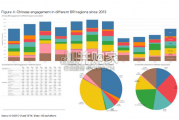
China’s financing and investment spread across 61 BRI countries in 2023 (up...
2024-02-27 31 英文报告下载
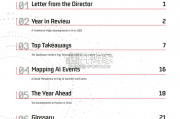
Though the risk of AI leading to catastrophe or human extinction had...
2024-02-26 51 英文报告下载
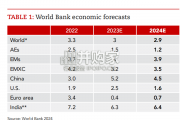
Focusing on the prospects for 2024, global growth is likely to come i...
2024-02-21 96 英文报告下载
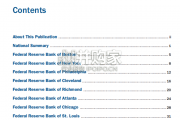
Economic activity declined slightly on average, employment was roughly flat...
2024-02-07 67 英文报告下载
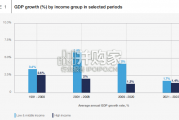
Economic growth can be defned as an increase in the quantity or quali...
2024-02-06 82 英文报告下载
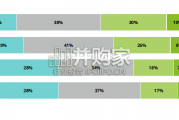
In this initial quarterly survey, 41% of leaders reported their organizatio...
2024-02-05 66 英文报告下载
最新留言